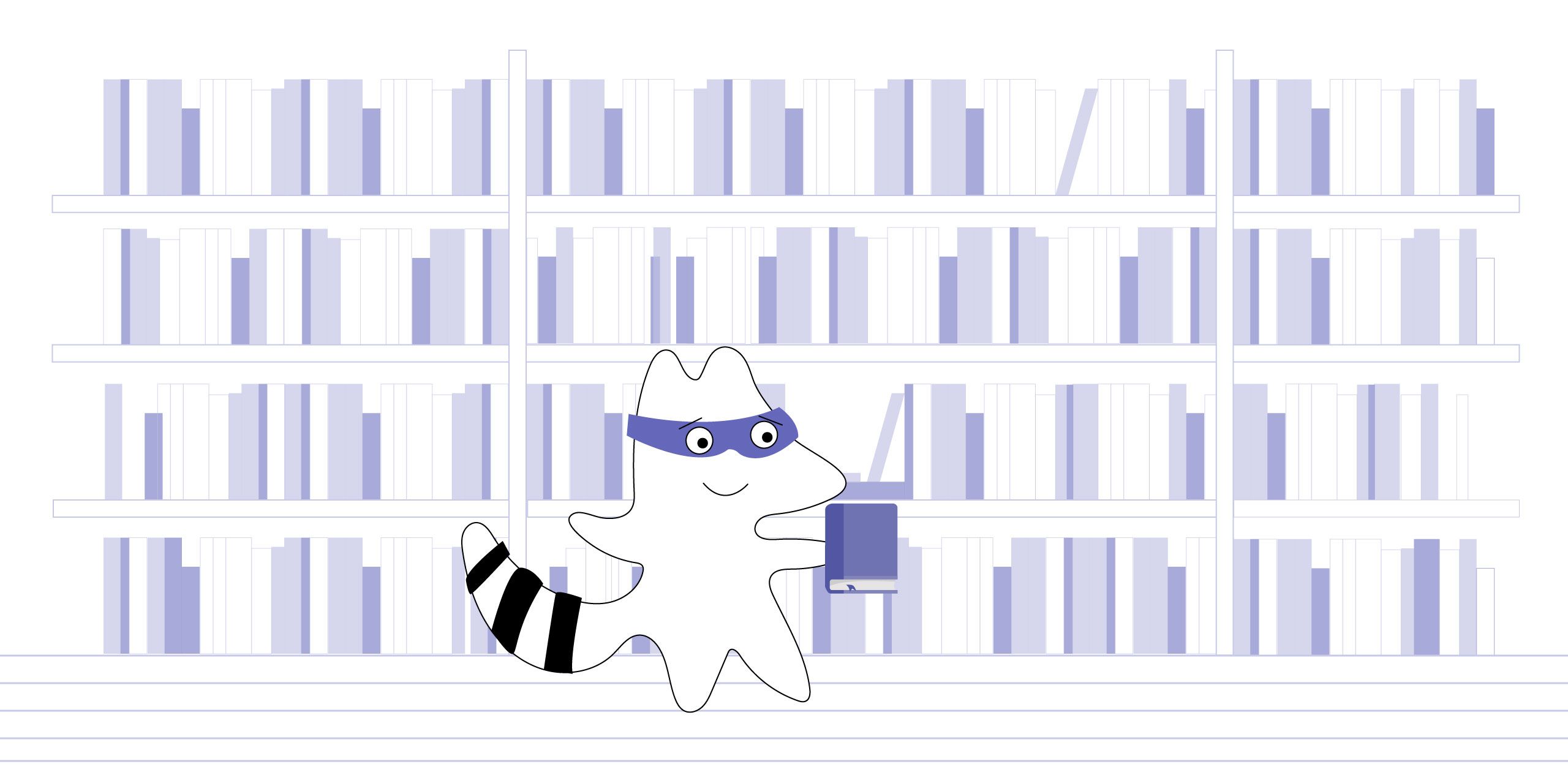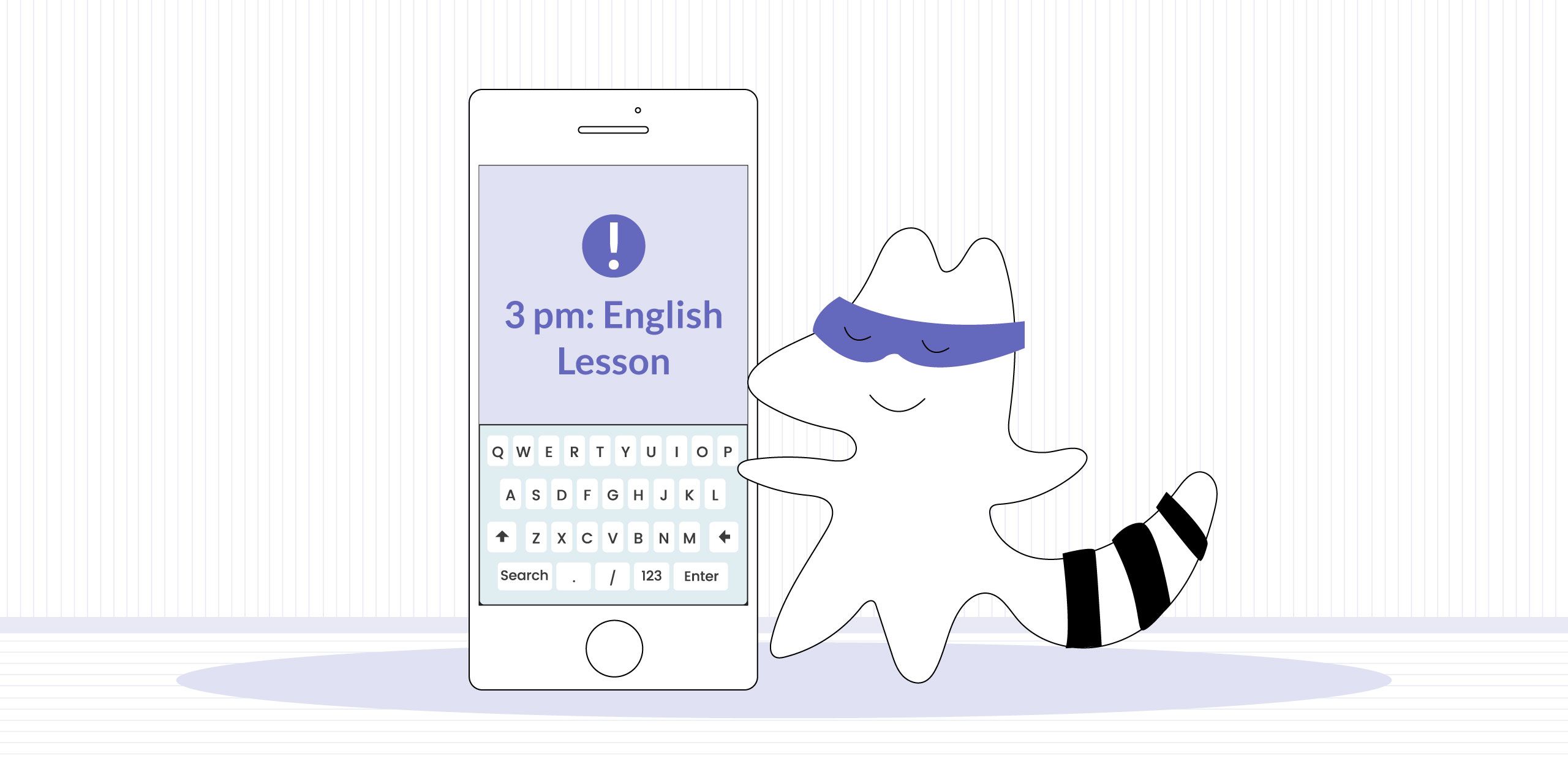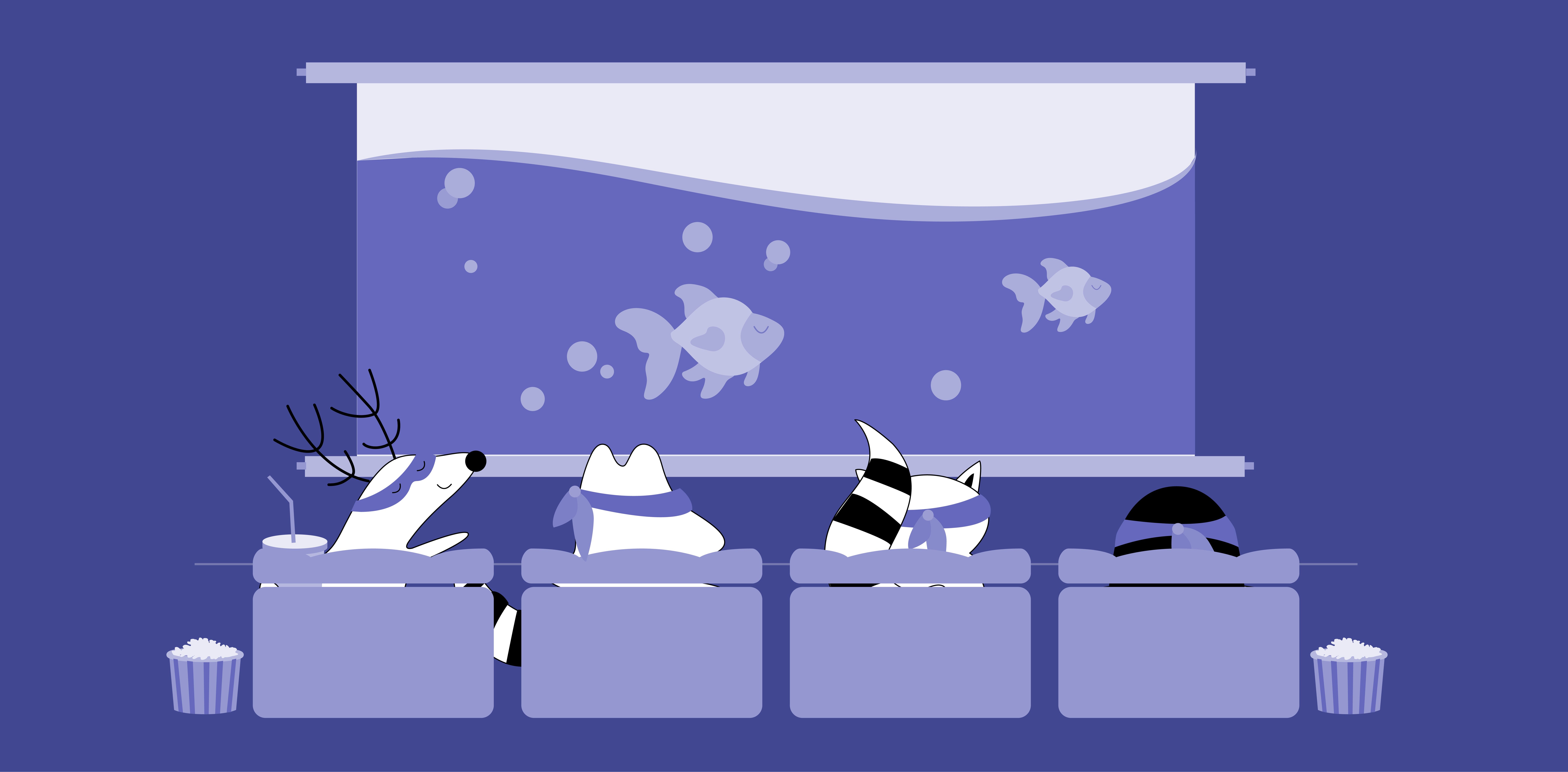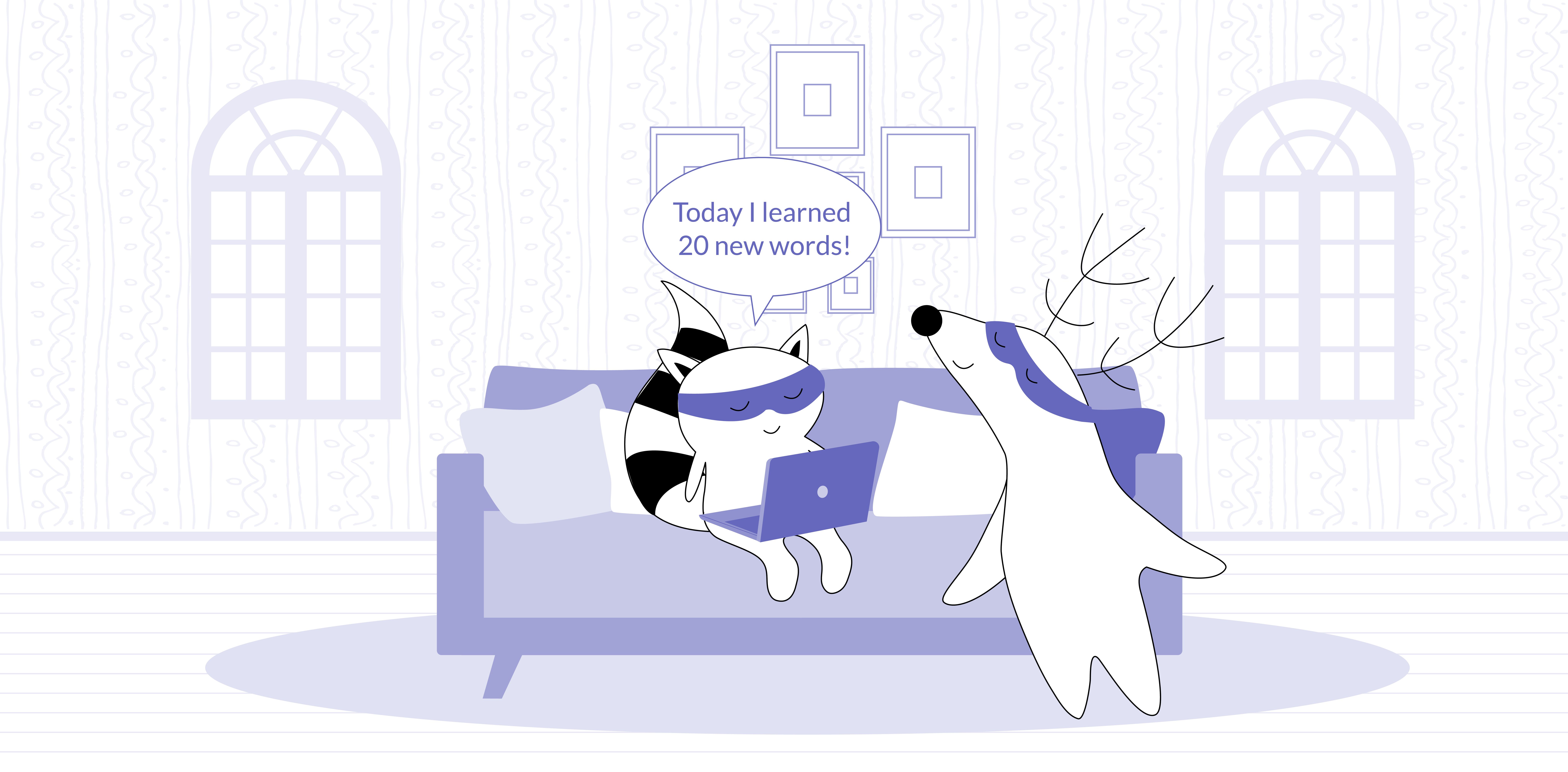
Are you a beginner starting an exciting path toward English proficiency? Do you love to travel or aspire to have an international career? If so, then this short guide is for you!
In today's world, English has become a universal language. It is not only the primary language of communication in many countries, but it is also the language of international business, education, and politics.
Knowing English vocabulary has become more crucial than ever before, and it is essential to have a basic understanding of English words to communicate effectively with native and non-native speakers in complex or simple conversations alike.
In this short guide, we will introduce you to basic but important words every beginner should know. By the end of it, you will have a basic understanding of the English language and be able to communicate more confidently. Let's get started with essential English words for beginners!
Learn English with Langster
Greetings
Learning greetings is an integral part of language learning, including English. Greetings are the first thing people say when they meet or see each other, and they can help establish a positive relationship between you and your interlocutor.
They are essential to show politeness and respect for others, and you will likely need to use them in many situations, such as when meeting new people, entering a store, or starting a conversation.
So, knowing different types of greetings and how to use them in different contexts can help you better understand the cultural norms of English-speaking cultures. It will also improve your skills and self-confidence in English by helping you initiate conversations, show interest in others, and create a friendly and positive atmosphere.
"Hello"
Hello is one of the most basic English words, but it's not the only one used when greeting people: it can be used interchangeably with "Hi." While "Hello" is considered a more formal greeting, "Hi," is considered a more casual greeting and is often used among friends, family, or colleagues.
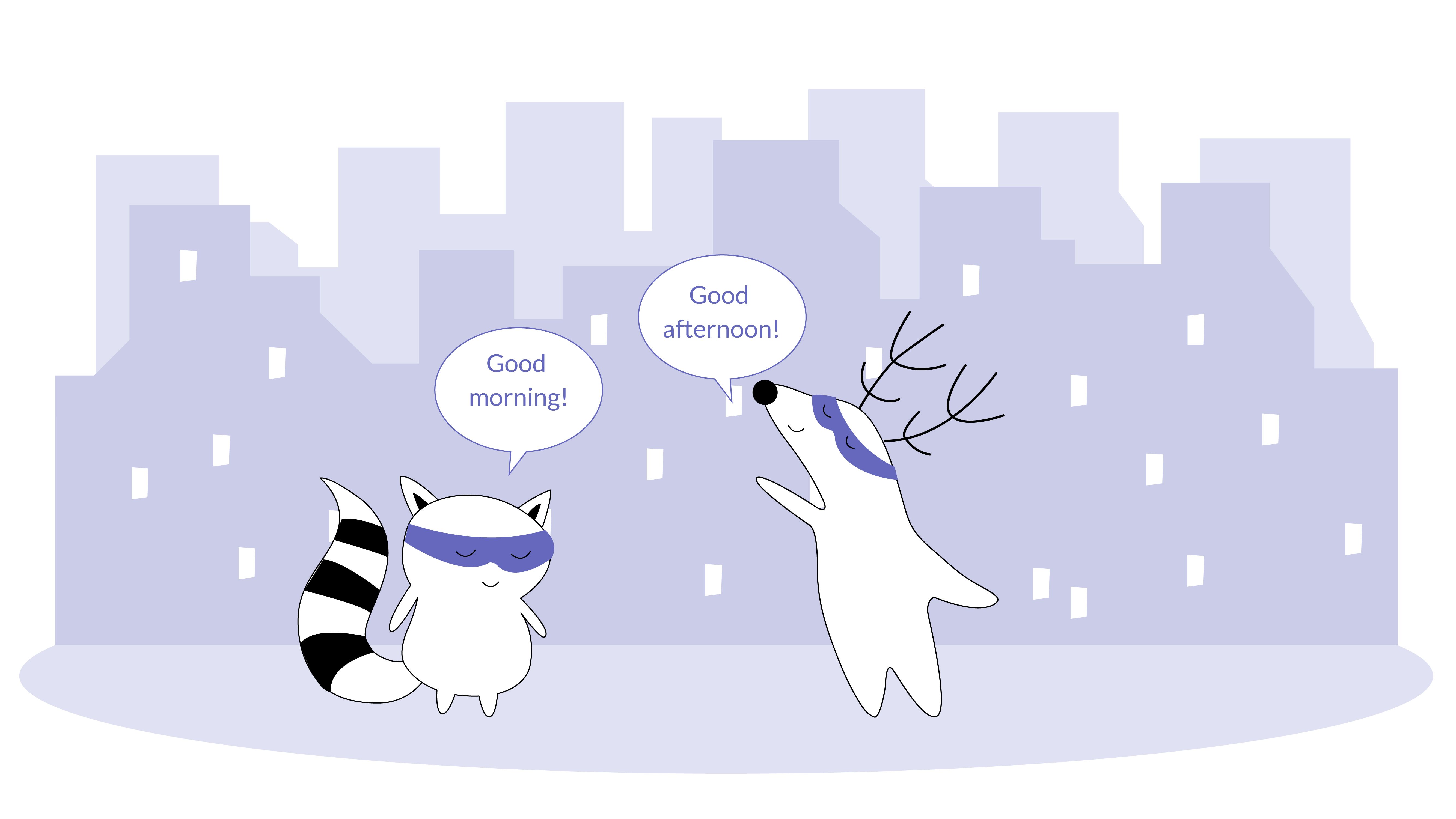
Other options include "good morning," "good afternoon," and "good evening," which are time-related and are typically used at different times of the day.
"Goodbye"
Your English vocabulary won't be complete without knowing how to say goodbye. Here are a couple of options:
- Goodbye: This is the most common and formal way to say farewell. It's appropriate for any situation, whether you're leaving a conversation with friends or a business meeting.
- See you later: It implies that you will see the person again soon. It's appropriate when you're saying goodbye to friends or acquaintances you expect to see once more.
- Take care: This is another informal way to say goodbye, and it's often used when you want to show concern for the other person's well-being.
Of course, there are many other basic words to say goodbye in English, including "farewell," "bye-bye," "so long," and "catch you later." The choice will depend on the situation and your personal style.
Polite Phrases
Politeness is a core value in English-speaking cultures, and learning English vocabulary words and phrases that show politeness can help learners understand and appreciate cultural norms and expectations.
These phrases and common vocabulary show respect for others and help build positive relationships, where you'll be perceived as respectful, courteous, and well-mannered. You'll also be able to communicate more effectively, particularly when you need to make requests or ask for help. In these cases, people will be more willing to help, avoiding misunderstandings or conflicts.
Politeness is particularly important in professional settings, such as job interviews, business meetings, or email correspondence.
Please
"Please" is another one of the most common words in English that is often used to make a request or ask for something in a polite way. It can also be used to show gratitude or appreciation.
Here are some examples of how to use "please":
To make a request:
- "Can you please pass me the salt?"
- "Please turn off the lights when you leave the room."
- "Please send me the report by tomorrow morning."
To ask for clarification:
- "Excuse me, could you please repeat that?"
- "I'm sorry, I didn't understand. Could you please explain it again?"
To express gratitude or appreciation:
- "Can I please buy you a coffee as a thank you gesture?"
- "Please let me know if there's anything I can do to repay your kindness."
Thank you
"Thank you" is a polite phrase that is used to express gratitude or appreciation. It's a way of acknowledging someone for something they've done or said.
To express appreciation:
- "Thank you for helping me with my homework."
- "Thank you for the gift, I love it!"
- "Thank you for taking the time to meet with me today."
To acknowledge a compliment:
- "Thank you, that's very kind of you to say."
- "Thank you, I'm glad you enjoyed the meal I cooked."
To apologize:
- "I'm sorry I'm late. Thank you for waiting for me."
- "I apologize for the mistake. Thank you for bringing it to my attention."
Using "thank you" is a simple way to show gratitude and respect to others. It can help to build positive relationships and improve communication.
Sorry & Excuse Me
"Sorry" and "excuse me" are both polite expressions used to apologize or get someone's attention. However, they are used in different contexts and have slightly different meanings.
On the one hand, "sorry" is used to express regret or to apologize for something that you have done wrong or that has caused inconvenience or harm to someone else. It is a way of acknowledging that you are responsible for the situation and expressing remorse.
Here are some examples of how to use "sorry":
- "I'm sorry I'm late. Traffic was really bad."
- "I'm sorry for forgetting your birthday. Can I make it up to you?"
- "I'm sorry for stepping on your foot. Are you okay?"
On the other hand, "excuse me" is used to get someone's attention, to ask for permission, or to apologize for interrupting someone.
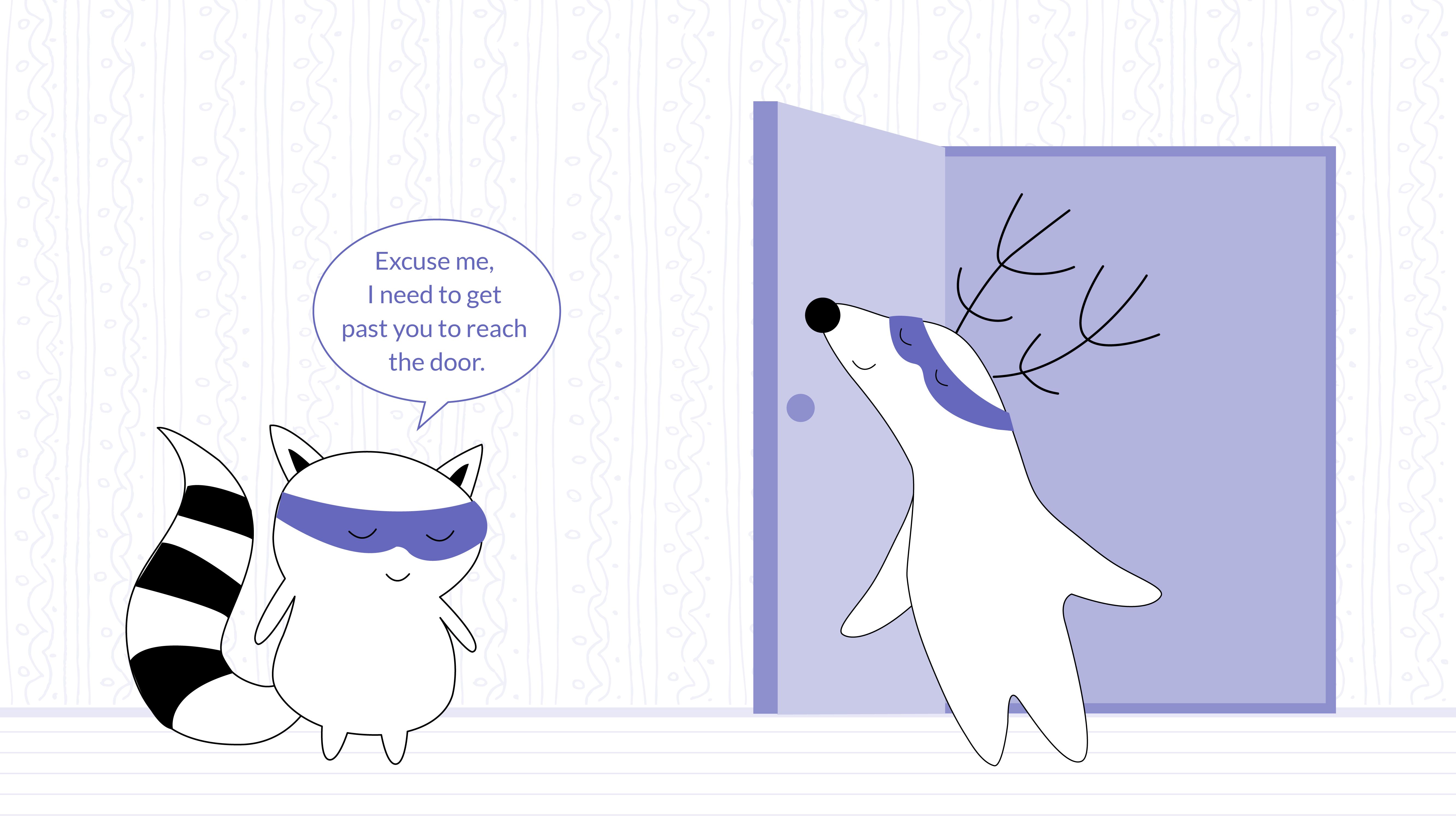
Here are some examples of how to use "excuse me":
- "Excuse me, can I ask you a question?"
- "Excuse me, do you know what time it is?"
- "Excuse me, I need to get past you to reach the door."
Pronouns
Pronouns in English are also crucial, because these are essential parts of speech and are used extensively in everyday communication. Pronouns are words used instead of nouns to avoid repetition and make sentences less awkward or more concise, and also for small talk.
Have a look at this vocabulary list with personal pronouns:
- I
- You
- He/She/It
- We
- You
- They
Demonstrative Pronouns
Demonstrative pronouns are pronouns that are used to point to or indicate specific people, places, or things. In English, there are four main demonstrative pronouns: "this," "that," "these," and "those."
- "This" is used to refer to a singular noun that is close to the speaker. For example: "This book is mine."
- "That" is used to refer to a singular noun that is far from the speaker. For example: "That car belongs to John."
- "These" is used to refer to plural nouns that are close to the speaker. For example: "These apples are fresh."
- "Those" is used to refer to plural nouns that are far from the speaker. For example: "Those birds are flying high."
Note: Demonstrative pronouns can also be used as adjectives to modify a noun. In this case, they come before the noun. For example: "This house is beautiful."
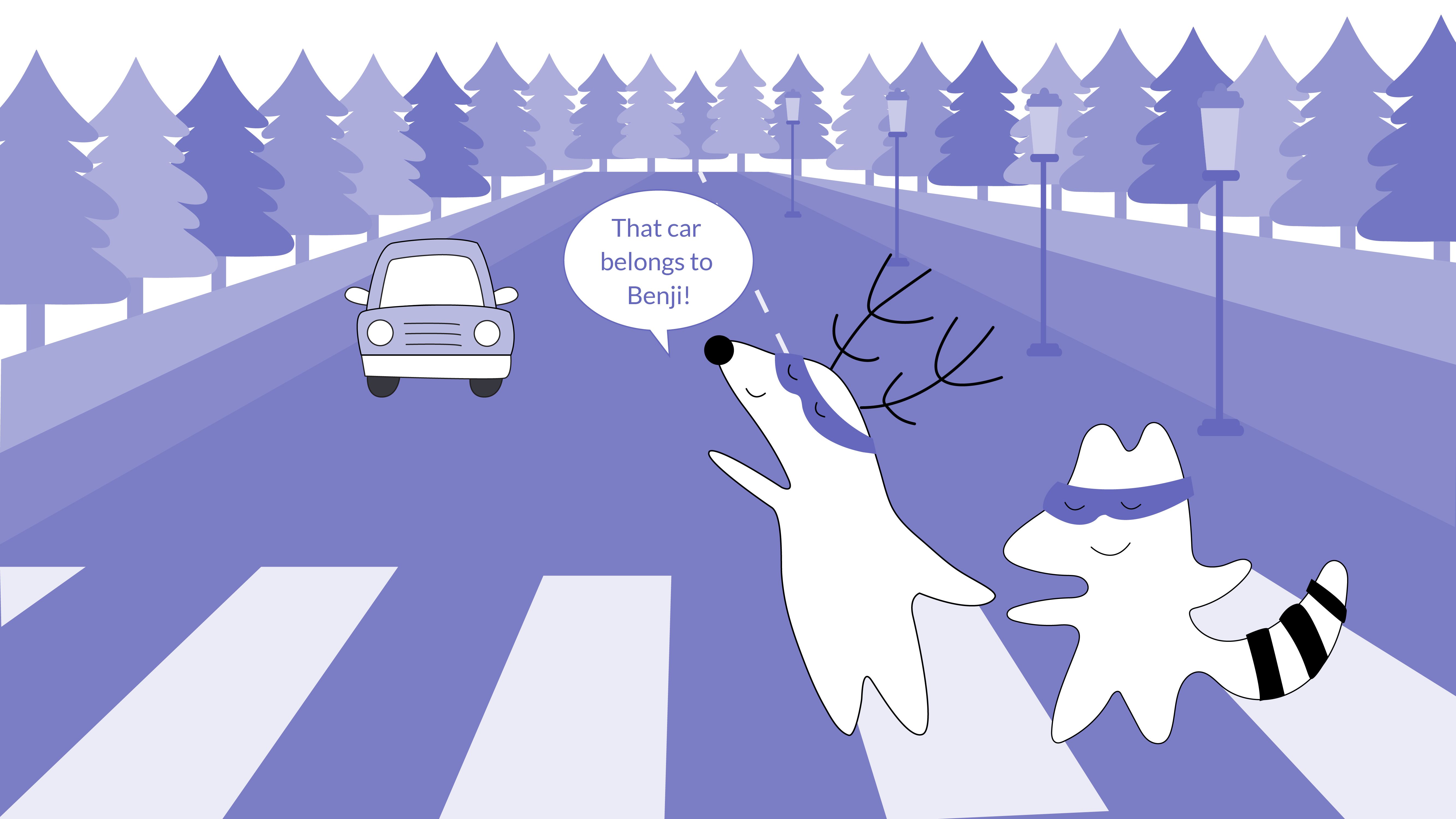
Question Words
Mastering Wh- words in English is vital, because they are essential components of questions, allowing us to gather information, seek clarification, and express curiosity using correct English grammar. Question words are used to form questions that begin with words such as what, when, where, why, who, and how.
By mastering the usage of these words, you can effectively communicate and obtain the information you need from others. For example, if you are lost and need directions, you can ask "Where is the nearest gas station?" Similarly, if you are curious about someone's job, you can ask "What do you do for a living?"
Let’s see two examples in detail: what and who.
What
The pronoun "what" is used to ask for information or to identify or specify something. It can also be used as a determiner in a noun phrase.
As an interrogative pronoun, "What" is used to ask for information or to seek clarification.
- What is your name?
- What time is it?
- What do you want to eat for lunch?
- What did you think of the movie?
"What" can also be used as a determiner to describe nouns or identify them.
- What book are you reading?
- What color is your car?
- What type of music do you like?
- What size of shoes do you wear?
Finally, "what" can be used to express surprise, excitement, or disbelief.
- What a beautiful view!
- What a great idea!
- What a disaster!
- What a relief!
Who
The pronoun "who" is a word that is commonly used in English to refer to people or persons. It can be used in several ways, including as a subject, object, or possessive pronoun.
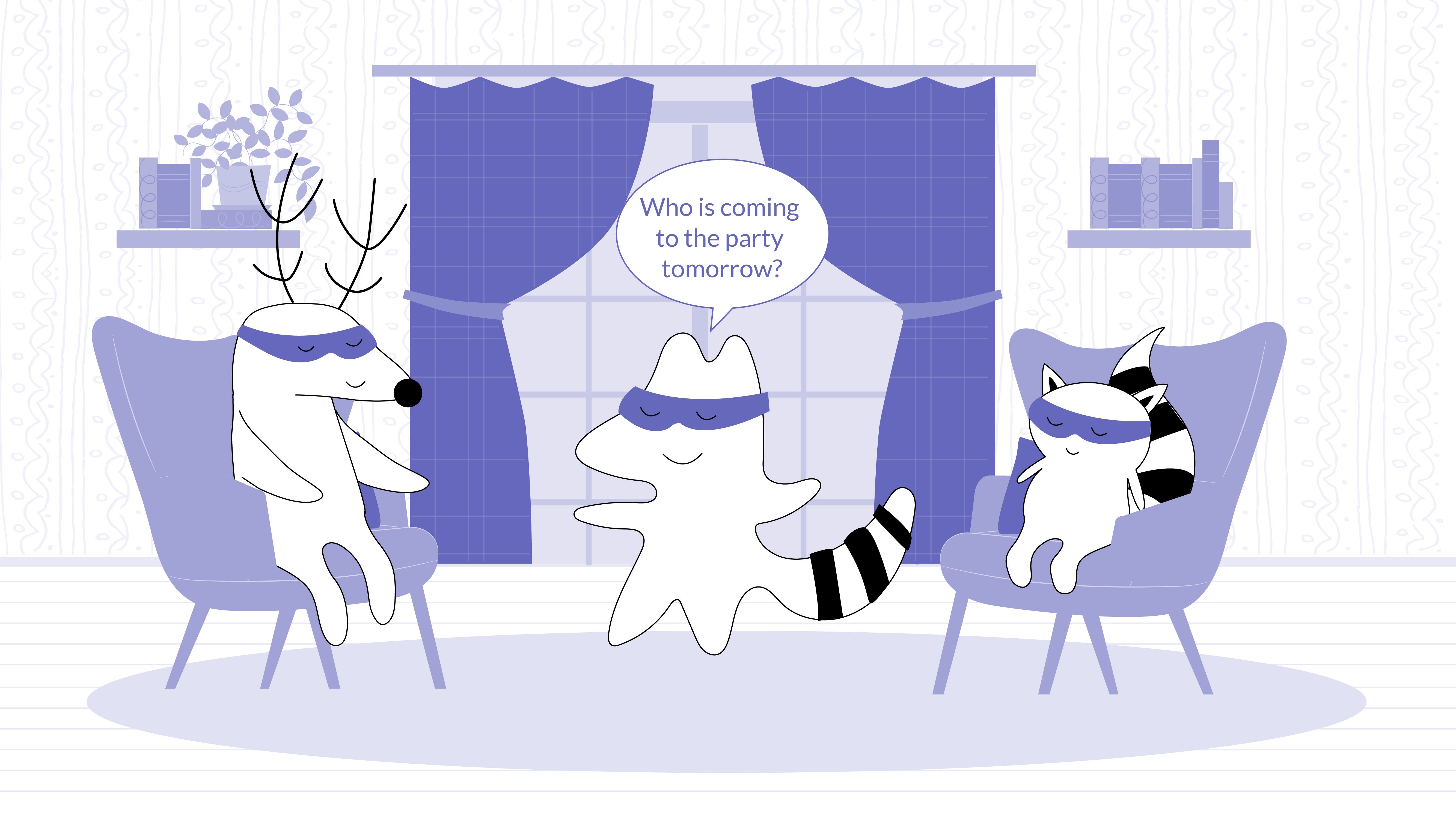
Subject Pronoun: "Who" can be used as the subject of a sentence to refer to a person or people.
- Who is coming to the party?
- Who broke the vase?
- Who sings that song?
- Who will be the next president?
Object Pronoun: "Who" can be used as the object of a sentence to refer to a person or people.
- Whom did you see at the park?
- Who did you invite to the wedding?
- Who should I talk to about this issue?
- Who do you think will win the game?
Possessive Pronoun: "Who" can be used to show possession or ownership by adding an apostrophe and an "s" at the end.
- Whose phone is this?
- Who's going to the concert tonight?
- Whose car is blocking the driveway?
- Who's responsible for cleaning up this mess?
Note: "Who's" is a contraction of "who is" and should not be confused with the possessive pronoun "whose."
The Bottom Line
All in all, learning English as a beginner can be a challenging but rewarding experience. With this list of basic English vocabulary, you’ll soon notice improvements in your fluency and accuracy when speaking the language.
The key to success is to be patient and persistent in your efforts and use various resources to support your learning journey, so that learning vocabulary does not become memorizing boring lists of words. For example, why not use Langster, an app that teaches you English based on your reading skills? You’ll learn new words with exciting stories no matter your proficiency level! Download it today, and get started.







